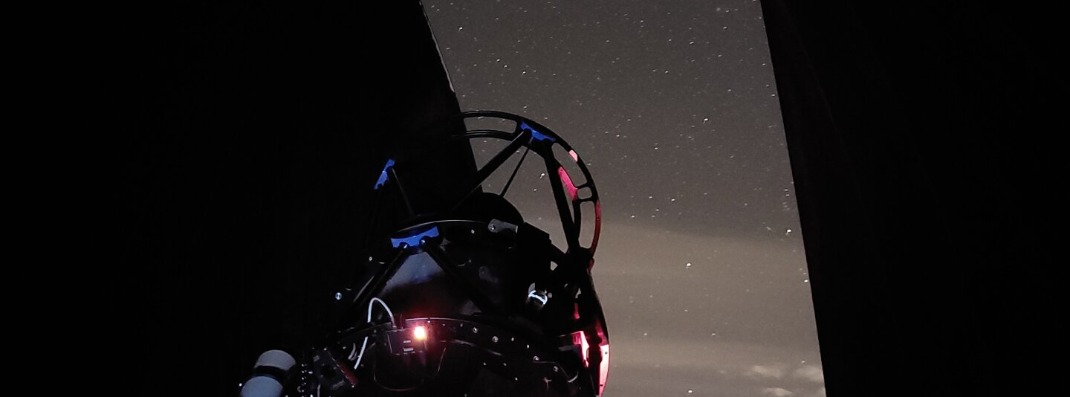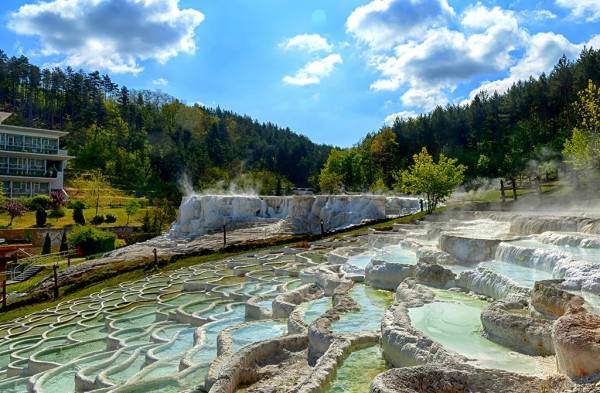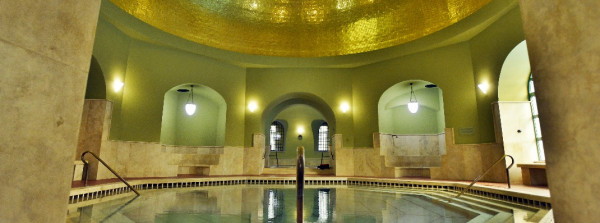The Bükki Csillagda offers unique evening programs thanks to its natural features and the largest demonstration telescope in the country!
WHEN CAN YOU PARTICIPATE?
We provide an evening program every Saturday evening for those interested individually or with a small group. And we always adjust the start of the program to darkness.
For groups greater than 20 people we can provide separate appointment.
WHAT DOES AN EVENING PROGRAM LOOK LIKE?
The Csillagda is opened HALF an hour before the start of the evening program. Visitors are greeted by two astronomers who check tickets. We can only admit customers with a valid ticket. It is not possible to buy tickets on site. While waiting for the start, you have the opportunity to enjoy sandwiches and lemonades provided by AstroBisztró. At the start of the program, the two astronomers greet the visitors and explain the schedule, which is always determined by the current weather.
IN CASE OF CLEAR WEATHER:
Upon request, we start with a short planetarium presentation, during which our visitors can practice their orientation among the stars. After that or even immediately after arrival, taking advantage of the clear weather, we go to the Observatory. After a short introduction to how to use the telescope, visitors can have a unique experience: they can spy on the sky with the help of the telescope with a mirror diameter of 61 cm.
In the meantime, the astronomers share many interesting facts about the starry sky, the observed celestial bodies, and also provide answers to the questions that have arisen.
The telescope shows can only be held in clear weather, so it is worth watching the weather forecast. The celestial bodies that can be detected at the given presentations are detailed below.
IN CASE OF UNCERTAIN TIME:
Astronomers keep an eye on the current weather and create the schedule so that observation always gets the highest priority. If the sky clears up in the meantime, they start detecting. What is certain is a planetarium presentation, during which our visitors can practice their orientation among the stars and learn about current phenomena in the sky.
IN CASE OF CLOUDY WEATHER:
The evening program will also be held in case of overcast weather. Then the participants can see the exhibition, where the astronomers will give a guided tour. It is then followed by a live planetarium presentation, during which you can practice your orientation among the stars and view current phenomena in the sky. They make a short visit to the Observatory, where they learn about the telescopes. The last program item is decided by the visitor: they can choose between watching a movie in the planetarium or trying out the experiences of the VR space.
Although we unfortunately cannot guarantee that there will be clear weather at every evening program, our staff will do everything during the program to ensure that our visitors can have a lasting experience regardless of the weather!
Attention! The evening program will be held if at least 20 people apply, so we ask that you also provide your phone number when purchasing tickets, if there are not enough people to start the program, so that we can notify you as easily as possible!
EVENING appointments FOR THE FOLLOWING PERIOD AND THE MOST VISIBLE OBSERVABLE CELESTIAL BODIES:
13. May: 20:30-23:30 - Venus; Mars; M44 (Beehive Group); Mizar-Alcor; M81/M82; M13; Epsylon Lyrae; M57 (Ring Nebula); Albireo
20. May : 21:00-23:30 - Venus; M44 (Beehive Group); Mizar-Alcor; M81/M82; M13; Epsylon Lyrae; M57 (Ring Nebula); Albireo
27. May: 21:00-23:30 - Venus; Moon; M44 (Beehive Group); Mizar-Alcor; M81/M82; M13; Epsylon Lyrae; M57 (Ring Nebula); Albireo
3. June: 21:00-23:30 - Venus; Moon; M44 (Beehive Group); Mizar-Alcor; M13; Epsylon Lyrae; Albireo
10. June: 21:00-23:30 - Venus; Mizar-Alcor; M44 (Beehive Group); M81/M82; M13; Epsylon Lyrae; M57 (Ring Nebula); Albireo
17. June: 21:00-23:30 - Venus; Mizar-Alcor; Epsylon Lyrae; M13; M81/M82; M57 (Ring Nebula); Albireo; NGC 869 (Perseus Twin Cluster)
24. June: 21:00-23:30 - Venus; Moon; Mizar-Alcor; Epsylon Lyrae; M13; M81/M82; M57 (Ring Nebula); Albireo; NGC 869 (Perseus Twin Cluster)
1. July: 21:00-23:30 - Venus, Moon, Mizar-Alcor; Epsylon Lyrae; M13; M57 (Ring Nebula); Albireo
8. July: 20:30-23:30 - Venus, Mizar-Alcor; Epsylon Lyrae; M13; M81/M82; M57 (Ring Nebula); Albireo
15. July: 20:30-23:30 - Venus, Mizar-Alcor; Epsylon Lyrae; M13; M81/M82; M57 (Ring Nebula); Albireo
22. July: 20:00-23:00 - Venus, Moon; Mizar-Alcor; Epsylon Lyrae; M13; M57 (Ring Nebula); Albireo
29. July: 20:30-23:30 - Moon; Mizar-Alcor; Epsylon Lyrae; M13; M57 (Ring Nebula); Albireo, NGC 869 (Perseus Twin Cluster), M31 (Andromeda Galaxy)
5. August: 20:30-23:30 - Mizar-Alcor; Epsylon Lyrae; M13; M57 (Ring Nebula); Albireo, NGC 869 (Perseus Twin Cluster), M31 (Andromeda Galaxy); Moon; Saturn
12. August: 20:30-23:30 - Mizar-Alcor; Epsylon Lyrae; M13; M57 (Ring Nebula); Albireo, NGC 869 (Perseus Twin Cluster), M31 (Andromeda Galaxy); Saturn
19. August: 20:00-23:00 - Moon; Mizar-Alcor; Epsylon Lyrae; M13; M57 (Ring Nebula); Albireo, NGC 869 (Perseus Twin Cluster), M31 (Andromeda Galaxy); Saturn
26. August: 20:30-23:30 - Moon; Mizar-Alcor; Epsylon Lyrae; M13; M57 (Ring Nebula); Albireo, NGC 869 (Perseus Twin Cluster), M31 (Andromeda Galaxy); Saturn








